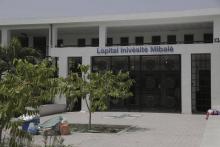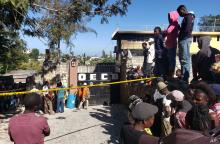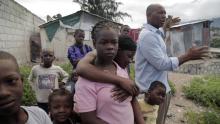Prayer and Preparation: How One Haiti Hospital is Confronting COVID-19
Below is an article by Miami Herald journalist Jacqueline Charles about Haiti's response to the COVID-19 pandemic and the University Hospital of Mirebalais which plays a central role in it. The University Hospital is one of the few hospitals with the capacity to stabilise patients with COVID-19 and to provide these services free of charge. The Hospital staff are preparing for a potential surge in cases which could be caused by Haitians returning from the Dominican Republic due to lost livelihoods, the near impossibility of social distancing, and a health care system that was fragile even prior to the pandemic. If you are looking for a way to help Haiti as it responds to the pandemic, consider a donation to Partners in Health which manages the University Hospital and remains the largest non-profit health care provider in the country.












